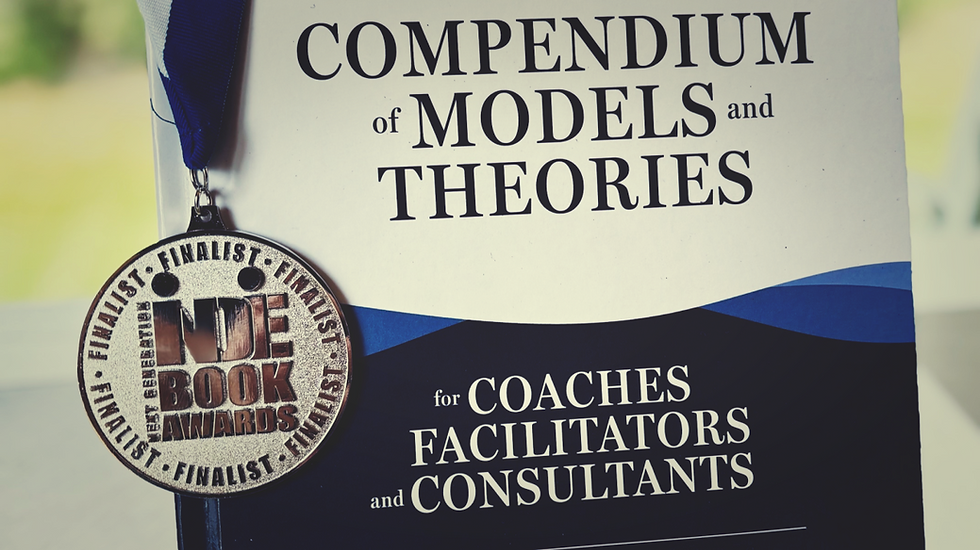John Dewey's Reflective Thinking in Coaching
- Max Palomeque

- Jul 9, 2025
- 5 min read

The Framework
This week’s entry is John Dewey’s Reflective Thinking. This is a useful resource for clients who want to explore their perceptions of an experience. In addition to its utility with clients, Dewey’s Reflective Thinking influences the way I coach, as it encourages me to question how I acquired the thoughts and beliefs that inform my coaching actions.
Developed in the early 1900s by noted educator John Dewey, Reflective Thinking provides a philosophical exploration of reflection and its function in facilitating the individual learning experience. Though sources classify Reflective Thinking as a process, Dewey provided no formal or sequential procedure to support his idea. Thus, we suggest Dewey’s work on reflection is more a philosophy than a formal process.
Dewey defined Reflective Thinking as a persistent and active consideration or contemplation of a belief or form of knowledge by identifying what we know, how we know it, what we do not know about it, and how this knowledge affects the way we act.
Dewey was among the first and most prominent philosophers of the 20th century to advocate questioning how we come to know what we know. This is because Dewey recognized that stereotypes and bias negatively influence how people acquire knowledge, and he declared these biases the antithesis of true knowledge. In fact, Dewey believed Reflective Thought was essential to combating the erroneous beliefs born of bias.
According to Dewey, “reflection is not a sequence of ideas (or a medley of ideas), but a consequence.” In other words, reflection is more than one’s thoughts about an experience, it is a part of the experience itself. In meaningful reflection, each thought emerges from the preceding thought, creating a logical chain of ideas where each link or idea supports the other.
Though some characterize Reflective Thinking as a method for problem-solving, it is more accurate to say its utility extends well beyond problem-solving. A staunch advocate of experiential learning, Dewey advocated the use of Reflective Thinking as an ideal process for learning from one’s experiences.
Recently, some have used the terms critical thinking and Reflective Thinking interchangeably, though many argue the two terms are distinctly different.
One source offers the following distinction: Critical thinking involves a series of cognitive processes designed to make decisions and achieve desired outcomes. Reflective Thinking consists of a contemplative process designed to make judgments about what has already happened to develop a greater understanding of the experience. With these distinctions, it is easy to see that while similar, the two concepts are different.
The concept of Reflective Thinking is useful for professionals seeking to develop a greater understanding of the fundamentals behind experiential learning. Such knowledge will help professional coaches and consultants to select and implement the most appropriate reflective process for clients based on their needs.
Dewey’s philosophy of Reflective Thinking would go on to influence many of the models on reflection contained within this compendium, like Johns’ Model for Structured Reflection and Kolb’s Experiential Learning Cycle.
Professionals interested in learning more about Dewey’s Reflective Thinking will find much written on the topic, including Dewey’s 1910 book, How We Think.
In 1933, Dewey revised his book, expanding upon the concept of Reflective Thinking. The updated version of the book is How We Think: A Restatement of the Relation of Reflective Thinking to the Educative Process.
Sources[i]
How I Use the Framework
My approach to coaching involves making observations of the client, their story, what they say, what they don’ say, and how they communicate. My observations include both verbal and non-verbal cues. From these observations, patterns emerge which inform the thoughts and beliefs I form about the client.
As a human being, I am as susceptible to bias and prejudice as anyone. Dewey made a point to emphasize that what we know and how we know it are equally important. He argued that bias affects us all, and when left hidden in our mind, this bias undermines the accuracy of our knowledge. Consequently, I often ask myself how it is I come to hold certain thoughts about my clients. In our profession we often say to be an effective coach we must be a witness to our client’s experiences, not a judge of it. The same can be said of how we see our own thoughts, feelings, and beliefs. Sometimes we must be a witness to our mindset, not a judge of it. This gives us a greater chance to see ourselves more clearly and accurately.
Dewey’s Reflective Thinking also reminds me of something I learned early in my career as an intelligence professional. Assumptions are not inherently bad; they are often necessary to help us “temporarily” bridge a gap in knowledge. They become problematic when we forget that an assumption is an assumption and adopt it as fact. Dewey’s work reminds me to question how I arrive at a belief or assessment, to be explicit in acknowledging the where the assumptions are in my belief, and to remember that assumptions are the playground of bias.
So how do I incorporate Dewey’s philosophy into practice, beyond asking myself how I “know” what I know about my client? For every client session, I spend about 30 minutes prior to the session reviewing my notes from previous sessions, noting observations and questions I have about the client. After each session, I spend another 30 minutes writing down my thoughts and observations, noting possible pathways for future exploration. Through all of this, I try to be mindful of where the assumptions are and how they influence my perceptions of the client.
If I have a session that does not feel right, or if I feel like the client is struggling to find the relevance in our session, I will do my own reflection of the session. When this happens, I ask myself “what did I observe that gives me reason to think/feel that something was off.” I’ll consider other ways I might interpret these observations. Is it possible that I brought something with me into the session that is influencing the way I am perceiving the client? How do I know what I know? What is missing from my knowledge? How do the gaps in my knowledge influence my perceptions? What role did my assumptions play in choosing my coaching actions?
I recognize that some coaches do not like to take notes and that is okay. Every coach has their own style or way of coaching. I have my reasons for taking notes, consequently, this example demonstrates how I incorporate Dewey’s philosophy in my practice. It may look different for you, and that is okay!
John Dewey’s Reflective Thinking is one of over 300 frameworks across 26 different categories included in the Infourge Compendium of Models and Theories. Next week, we will explore the SCARF Model, a great resource for clients experiencing triggering events.
[i] John Dewey’s Reflective Thinking
Farra, H. (1988, March). The reflective thought process: John Dewey revisited. The Journal of Creative Behavior, 22(1), 1–8. Retrieved from Wiley Online Library: https://onlinelibrary.wiley.com/doi/abs/10.1002/j.2162-6057.1988.tb01338.x
Reflective thinking: RT. (n.d.). Retrieved from the University of Hawai’i: https://www.hawaii.edu/intlrel/pols382/Reflective%20Thinking%20-%20UH/reflection.html
Reflective thinking. (n.d.). Retrieved from Lumen Learning: https://lumen.instructure.com/courses/218897/pages/linkedtext54355?module_item_id=5007253
Porntaweekul, S., Raksasataya, S., & Nethanomsak, T. (2016, March 23). Developing reflective thinking instructional model for enhancing students’ desirable learning outcomes, Educational Research and Reviews, 11(6), 238–251. Retrieved from ERIC Educational Resource Center: https://files.eric.ed.gov/fulltext/EJ1094371.pdf
Popova, M. (2014). How we think: John Dewey on the art of reflection and fruitful curiosity in an age of instant opinions and information overload. Retrieved from Brainpickings.org: https://www.brainpickings.org/2014/08/18/how-we-think-john-dewey/
Genç, B. (n.d.). The nature of reflective thinking and its implications for in-service teacher education. Retrieved from DergiPark: https://dergipark.org.tr/tr/download/article-file/50165



Comments